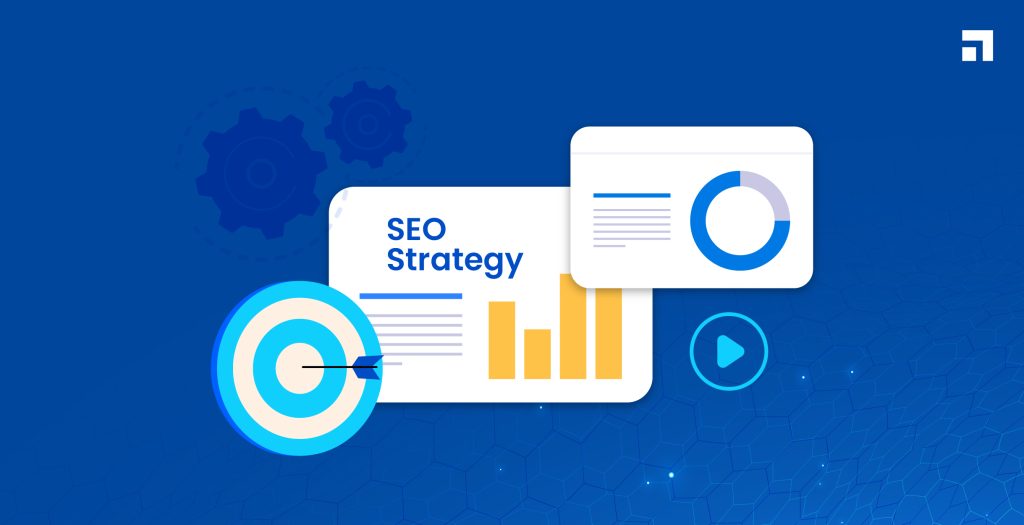Comprehensive Guide to Building an Effective SEO Strategy
Search engine optimization (SEO) is the practice of improving the quality and quantity of website traffic by increasing the visibility of a website or a web page in search engine results pages (SERPs) through organic, unpaid or natural search results. SEO involves optimizing a website’s content and structure to make it more attractive to search engines and their users, with the goal of achieving higher rankings in search engine results pages (SERPs) for relevant search queries. The process of SEO includes various techniques such as keyword research, on-page optimization, link building, and content creation that can help a website to rank higher in search results and drive more organic traffic to the site. The ultimate goal of SEO is to increase the visibility of a website and to attract more targeted visitors to the site, which can lead to increased conversions and revenue for businesses.
Types of search engine optimization
There are two main types of search engine optimization (SEO):
- On-page SEO: On-page SEO refers to the optimization of the content and structure of a website’s individual pages. This includes optimizing the titles, headings, meta descriptions, images, and other elements of a page’s HTML structure, as well as ensuring the content is relevant, high-quality, and keyword-rich. On-page SEO also involves ensuring the website is user-friendly, mobile-responsive, and optimized for website speed and performance.
- Off-page SEO: Off-page SEO refers to the optimization of a website’s external factors, such as backlinks from other websites, social media presence, and local SEO. This involves building high-quality backlinks from authoritative websites, creating engaging and shareable content on social media, and optimizing a website for local search results by incorporating local keywords and phrases, claiming and optimizing your Google My Business listing, and building local citations.
Both on-page and off-page SEO are essential components of a successful SEO strategy, as they work together to improve a website’s visibility, credibility, and relevance in the eyes of search engines and users.
Advantages of search engine optimization
Search engine optimization (SEO) offers numerous advantages for businesses and websites, including:
- Increased organic traffic: By optimizing a website for search engines, it can attract more targeted and relevant traffic through improved visibility in search engine results pages (SERPs), which can lead to increased organic traffic.
- Cost-effective: SEO is a cost-effective digital marketing strategy compared to other forms of online advertising such as pay-per-click (PPC) advertising. While it requires an investment of time and resources upfront, the long-term benefits of increased organic traffic can be significant.
- Improved user experience: SEO involves optimizing a website’s content and structure to make it more user-friendly, which can improve the user experience and increase engagement on the site.
- Builds brand credibility: Higher rankings in search results can give a business or website greater credibility and visibility, making it easier to establish a strong online brand presence.
- Competitive advantage: By ranking higher than competitors in search results, businesses can gain a competitive advantage in their industry or niche.
- Long-term benefits: Unlike other forms of online advertising, the effects of SEO can be long-lasting, providing continued benefits over time.
Overall, search engine optimization can provide businesses with numerous benefits, including increased traffic, improved user experience, and a competitive advantage, making it a valuable investment for any website or business looking to increase their online presence.
Search engine optimization strategy
A successful search engine optimization (SEO) strategy involves several key components:
- Keyword research: Identify relevant keywords and phrases that your target audience is searching for, and incorporate them into your website’s content.
- On-page optimization: Optimize your website’s content, including titles, headings, meta descriptions, and alt tags, to ensure it is optimized for search engines and user experience.
- Technical optimization: Ensure your website’s technical structure is optimized for search engines, including website speed, mobile responsiveness, and website architecture.
- Content creation: Develop high-quality, original content that is relevant to your target audience and incorporates relevant keywords and phrases.
- Link building: Build high-quality backlinks from authoritative websites to your own website to increase your website’s credibility and authority in the eyes of search engines.
- Local SEO: Optimize your website for local search results by incorporating local keywords and phrases, claiming and optimizing your Google My Business listing, and building local citations.
- Analytics and tracking: Use web analytics tools such as Google Analytics to track and measure the success of your SEO strategy, and make adjustments as needed.
Overall, a successful SEO strategy involves a combination of technical optimization, content creation, keyword research, link building, and ongoing analytics and tracking to ensure continued success.
How to choose best search engine optimization service provider?
Choosing the best search engine optimization (SEO) service provider can be a critical decision that can impact the success of your online business or website. Here are some factors to consider when choosing an SEO service provider:
- Experience and expertise: Look for an SEO service provider that has a track record of success and experience working with businesses in your industry or niche. They should have a deep understanding of search engine algorithms, best practices, and industry trends.
- Services offered: Consider the range of services offered by the SEO service provider, including on-page optimization, off-page optimization, content creation, keyword research, and analytics and tracking.
- Transparency and communication: Look for an SEO service provider that is transparent about their process, communicates regularly with clients, and provides regular reports on their progress.
- Reputation and references: Check reviews and testimonials from past clients, as well as references from businesses similar to yours. A reputable SEO service provider should be able to provide examples of their work and references upon request.
- Pricing and ROI: Consider the pricing structure and ROI potential of the SEO service provider. Look for a provider that offers transparent pricing, clearly defined deliverables, and a solid ROI potential.
- Ethics and quality: Ensure that the search engine optimization service provider uses ethical, white-hat SEO techniques that are in compliance with search engine guidelines. Look for a provider that emphasizes quality over quantity and prioritizes long-term success over short-term gains.
By considering these factors, you can choose an SEO service provider that is best suited to your business’s needs and can help you achieve your online marketing goals.

